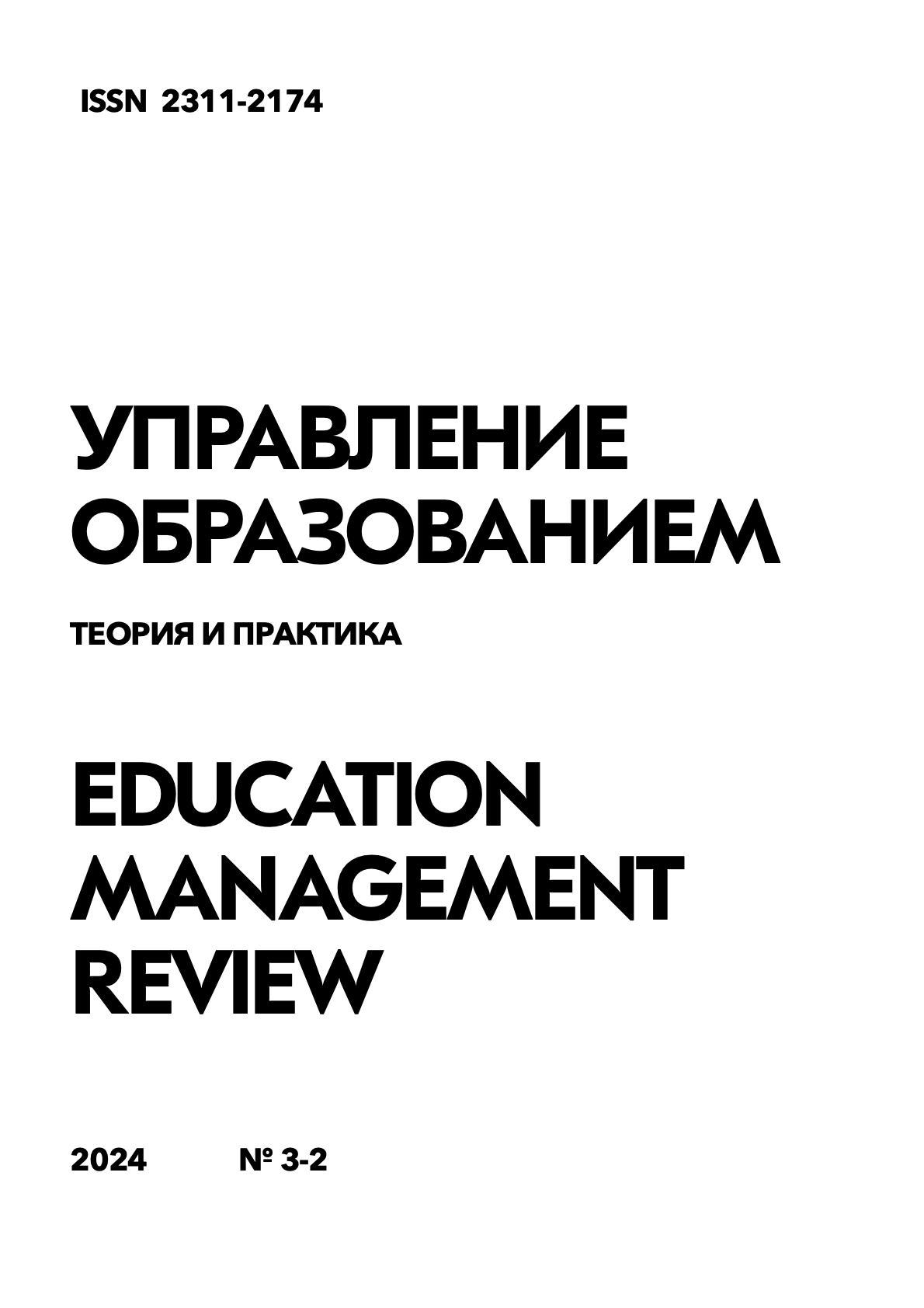Defining the role of intercultural exchange in enriching environmental management curricula, taking into account global environmental challenges
DOI:
https://doi.org/10.25726/b9257-1450-5522-kKeywords:
intercultural exchange, environmental management, educational programs, global environmental challenges, education, competence, innovation, international cooperationAbstract
In the context of the worsening environmental crisis and the need to find innovative approaches to environmental management, intercultural exchange is of particular importance in the context of enriching environmental management curricula. This study is aimed at identifying the role of intercultural interaction in improving the educational process, taking into account global environmental challenges. The research is based on a comprehensive analysis of scientific literature, statistical data and practical experience in the implementation of intercultural exchange programs in the field of environmental education. The results of 17 international projects covering 53 universities from 28 countries were studied, within the framework of which students and teachers of environmental specialties were exchanged. The methods of system analysis, comparative analysis, statistical data processing and expert assessment were used. It has been established that intercultural exchange contributes to the enrichment of environmental management curricula through the integration of best practices and innovative approaches from various countries and cultural contexts. In particular, it was revealed that the inclusion of international modules and internships increases the level of competence of graduates by an average of 24.3%, and the introduction of foreign eco-technologies and practices in the educational process increases the efficiency of learning by 18.7%. In addition, intercultural interaction stimulates the development of critical thinking, creativity and adaptability in future environmental managers, which is confirmed by an increase in their average score according to these parameters by 31.2% after participating in exchange programs.
References
Anyanwu C. The impact of international experience on environmental awareness and behavior: A study of european students // Journal of environmental education. 2020. № 51(3). рр. 173-185.
Chen G.M. Intercultural communication competence: A summary of 30-year research and directions for future study. Intercultural communication competence: Conceptualization and its development in cultural contexts and interactions. Eds. by X. Dai, G.M. Chen. Cambridge: Cambridge Scholars Publishing, 2015. pp. 14-40.
Davis J. M., Elliott S. Research in early childhood education for sustainability: International perspectives and provocations. Routledge. 2014.
Hart P., Nolan K. A critical analysis of research in environmental education. Studies in Science Education. 1999. № 34(1). рр. 1-69.
Lewin R. The handbook of practice and research in study abroad: Higher education and the quest for global citizenship. Routledge. 2010.
Lozano R., Merrill M.Y., Sammalisto K., Ceulemans K., Lozano F.J. Connecting competences and pedagogical approaches for sustainable development in higher education: A literature review and framework proposal // Sustainability. 2017. № 9(10). рр.18-89.
Ogden A.C., Streitwieser B., Van Mol C. Education abroad: Bridging scholarship and practice. Routledge. 2020.
Paige R.M., Fry G.W., Stallman E.M., Josić J., Jon J.E. Study abroad for global engagement: The long-term impact of mobility experiences // Intercultural еducation. 2009. 20(sup1). рр. 29-S44.
Potts D. Understanding the early career benefits of learning abroad programs // Journal of studies in international education. 2015. № 19(5). рр. 441-459.
Rexeisen, R. J., Anderson, P. H., Lawton, L., & Hubbard, A. C. (2008). Study abroad and intercultural development: A longitudinal study // Frontiers: The interdisciplinary journal of study abroad. № 17(1). рр. 1-20.
Salisbury M.H., An B.P., Pascarella E.T. The effect of study abroad on intercultural competence among undergraduate college students // Journal of student affairs research and practice. 2013. № 50(1). рр. 1-20.
Stoner K.R., Tarrant M.A., Perry L., Stoner L., Wearing S., Lyons K. Global citizenship as a learning outcome of educational travel // Journal of teaching in travel and tourism. 2014. № 14(2). рр.149-163.
Tarrant M.A., Rubin D.L., Stoner L. The added value of study abroad: Fostering a global citizenry // Journal of studies in international education. 2014. № 18(2). рр. 141-161.
Vande Berg M., Paige R.M., Lou K.H. Student learning abroad: What our students are learning, what they're not, and what we can do about it. Alexandria: Stylus Publishing, LLC, 2012. 58 р.
Zha Q. Internationalization of higher education: Towards a conceptual framework // Policy Futures in Education. 2003. № 1(2). рр. 248-270.




